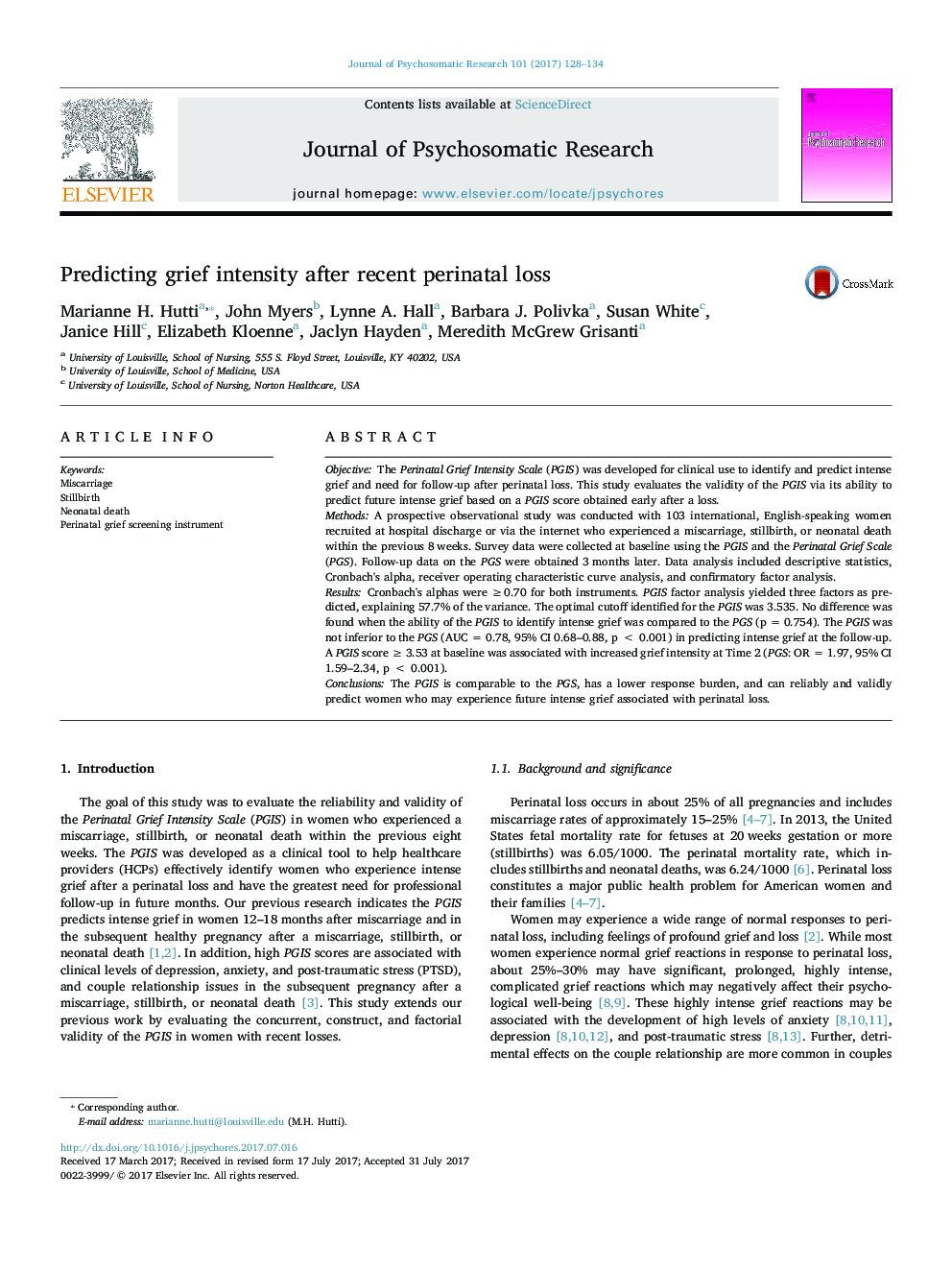| Article ID | Journal | Published Year | Pages | File Type |
|---|---|---|---|---|
| 5045827 | Journal of Psychosomatic Research | 2017 | 7 Pages |
â¢The PGIS exhibited excellent concurrent, construct, and factorial validity.â¢An early PGIS score â¥Â 3.53 predicted high grief intensity 3 months later.â¢The PGIS was comparable to the PGS in identifying grief intensity.â¢The PGIS is freely available in the Google Store and at http://uoflnursingpgis.org.
ObjectiveThe Perinatal Grief Intensity Scale (PGIS) was developed for clinical use to identify and predict intense grief and need for follow-up after perinatal loss. This study evaluates the validity of the PGIS via its ability to predict future intense grief based on a PGIS score obtained early after a loss.MethodsA prospective observational study was conducted with 103 international, English-speaking women recruited at hospital discharge or via the internet who experienced a miscarriage, stillbirth, or neonatal death within the previous 8 weeks. Survey data were collected at baseline using the PGIS and the Perinatal Grief Scale (PGS). Follow-up data on the PGS were obtained 3 months later. Data analysis included descriptive statistics, Cronbach's alpha, receiver operating characteristic curve analysis, and confirmatory factor analysis.ResultsCronbach's alphas were â¥Â 0.70 for both instruments. PGIS factor analysis yielded three factors as predicted, explaining 57.7% of the variance. The optimal cutoff identified for the PGIS was 3.535. No difference was found when the ability of the PGIS to identify intense grief was compared to the PGS (p = 0.754). The PGIS was not inferior to the PGS (AUC = 0.78, 95% CI 0.68-0.88, p < 0.001) in predicting intense grief at the follow-up. A PGIS score â¥Â 3.53 at baseline was associated with increased grief intensity at Time 2 (PGS: OR = 1.97, 95% CI 1.59-2.34, p < 0.001).ConclusionsThe PGIS is comparable to the PGS, has a lower response burden, and can reliably and validly predict women who may experience future intense grief associated with perinatal loss.
